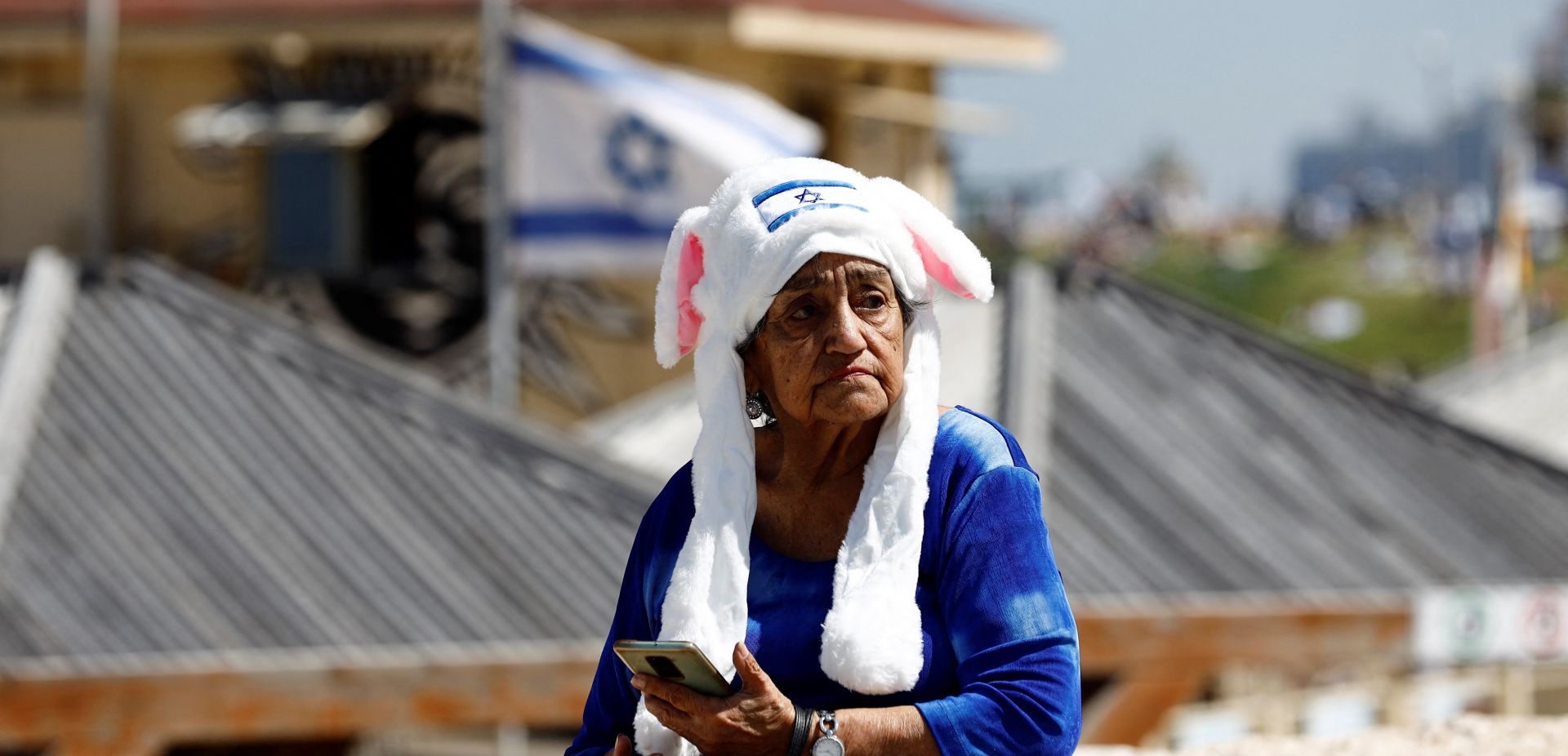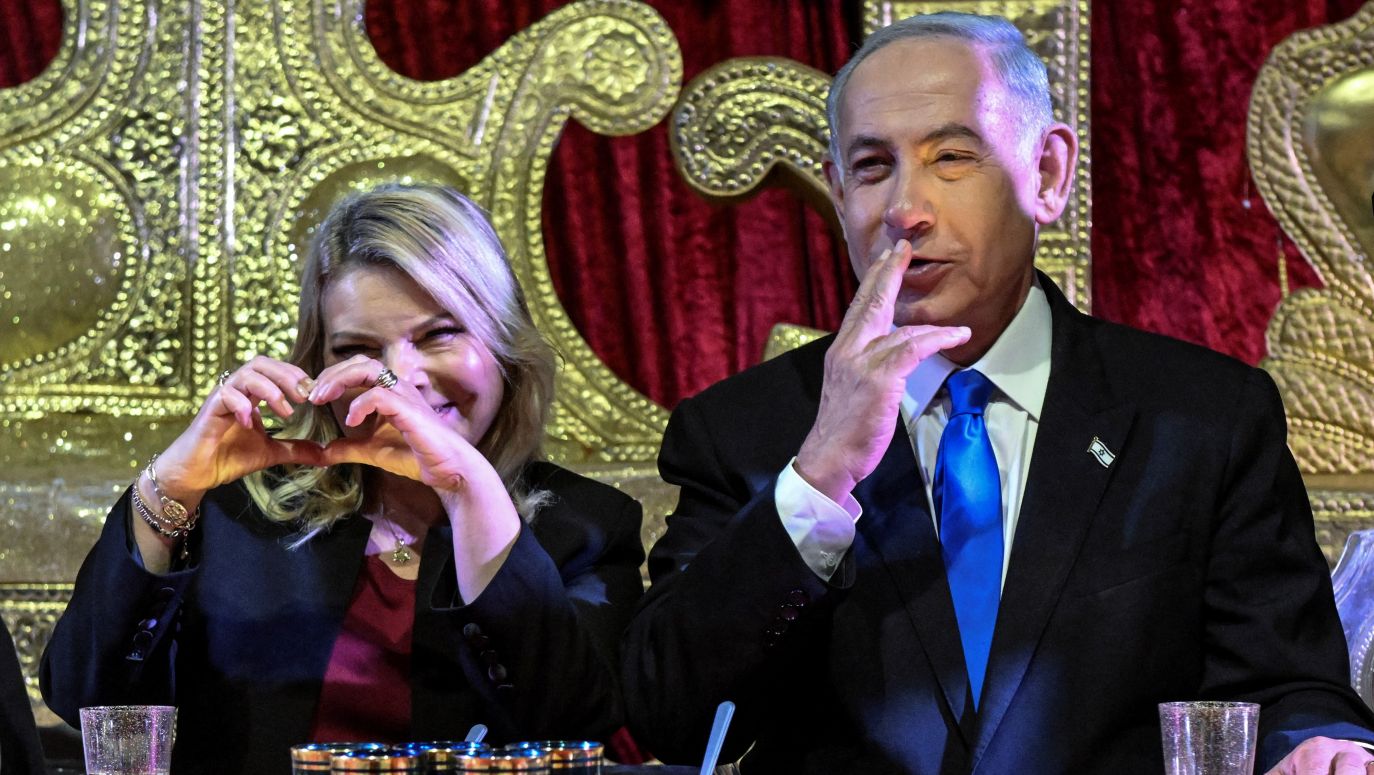Such a statement referred clearly to the conflict over the judiciary. Part of the US elite has taken over the rhetoric of Israelis protesting against the reform of the judiciary, those who equated the status of the Supreme Court with the existence of democracy.
Poast also raised a second fundamental point, namely that Israel cannot afford to undermine political stability in the region. An important element in building this stability is the achievement of a political solution allowing for the creation of a separate and viable Palestinian state.
Poast drew attention to the fact that there is growing sympathy for the Palestinians in American society, especially among the young generation. He also quoted the results of a survey, according to which most respondents supported a two-state solution. This means that in the future, more and more Americans will be unwilling to give governments in Jerusalem
carte blanche for any kind of policy, which might lead to the eventual end of the "special relationship" and public approval of such a change.
 SIGN UP TO OUR PAGE
SIGN UP TO OUR PAGE 
In other presentations, further arguments have appeared as to why it might not make sense to continue relations as they are. Their authors contended for example that Israel is a rich country and that financial support for it no longer has a raison d'être. Moreover, since it is a country with nuclear weapons and a strong and efficient army, it does not need military support either. Added to this, a possible crisis around Taiwan would involve US forces and resources to an extent that is difficult to imagine and assess accurately.
There is a further reason why it will not be easy to return to harmonious relations between Jerusalem and Washington, one that involves a fundamental switch in American politics. It is becoming increasingly clear that the Middle East is losing the primary importance it has held for the United States over the decades. To a large extent, this is due to the fact that crude oil, for so long the life blood of the world's economic circulation, has gradually become less significant.
In the coming decades, the huge amounts of money the Biden administration has been pumping into energy transition will result in Middle Eastern oil ceasing to play the fundamental role it had in the 1970s, when OPEC turned off the tap and caused a global crisis. Today, the minerals necessary for the production of electric batteries and solar panels are rapidly becoming as important as oil. They are located elsewhere and other countries control access to them.
Perhaps it was this process that made Washington so calm about Iran's China-sponsored deal with Saudi Arabia. Perhaps that is why President Biden could afford such an openly hostile attitude towards the Saudi ruler, whom, before he was elected president, he once called a pariah.
There is a bipartisan consensus in the US Congress about China's extreme importance. Assisting Ukraine's defence against Russia, which has renewed US involvement in Europe, has become a part of the rivalry between the US and China.
Thus, a two-track changeover process is taking place. From having been Israel's most loyal ally, the US is changing into a mere ally. Meanwhile, Israel, once Washington's irreplaceable ally in a key region of the world, is becoming no more than an important ally in a once vital region, that is gradually slipping into the category of being just one of a number of important regions.
Americans were not the only ones expressing concern about the state of democracy in Israel. Calls to support the protests also rang out in Europe. One that featured on the website of the European Policy Center think tank was an attempt to prove in a somewhat twisted way that "supporting democratic values is not meddling in internal affairs."
However, the appeal, while in essence similar to many of the other calls to preserve democracy that had appeared at the beginning of the year, differed in that it contained a singularly significant word in its final paragraph, which urged the European Union not to play the role of a spectator in this dispute. Seemingly, the authors of the text deliberately used the word "bystander", which is commonly used in the context of Holocaust, where, according to one school of research, those involved were divided into three categories: "perpetrators, victims and bystanders".
Therefore it is impossible to resist the impression that the authors implicitly intended to add more drama to the current situation and push Europe into action by generating a moral leverage and comparing the attitude of current politicians to the events of the past. The appeal sounded a bit false, or at least very disturbing.
Liberals like to eat well
The biggest threat to Israel is, of course, Iran. The rhetoric of its leaders, who for decades have been talking about the destruction of Israel ("Great Satan-America's watch dog") has recently taken on a disturbing veracity. While Iranian politicians shouting about the annihilation of Israel at a time when they had no more than tanks and guns might arouse just a pitying smile, they sound completely different now that their country is actually about to approach the moment of obtaining nuclear weapons.
I am not going to play prophet and judge as to whether Iran's quest for nuclear weapons is simply a quest to protect the country from possible attack, as many observers claim. What is important to me is that this aspiration is a fact, a reality. The 2015 nuclear deal was only delaying, and not preventing, the process of acquiring fissile material. Sooner or later Iran will be able to produce warheads. It already has missile technology. When this does happen, Jerusalem and Tel Aviv will face destruction.
The call to "prepare for war", that I quoted at the beginning of this article, refers to this threatened eventuality. Israel has already successfully stopped a nuclear program in an enemy country once. In 1981, it attacked a reactor in Iraq with a fighter strike. Despite the fact that the technological disparity between the Israeli army and armies of other countries in the region has since decreased greatly while the risks associated with launching such an operation are now significantly higher, it is possible that a similar action is currently being planned at the military forces HQ in Tel Aviv.
Voices calling for an attack before Iran has the opportunity to strike first are growing stronger, and it may turn out that Israel's leadership will face a dilemma similar to that before the Six-Day War in 1967.
But then, less than 20 years after the establishment of the state, Israel's social cohesion and willingness to act in defense of independence were on a completely different level. It is appropriate now to return to the fundamental division revealed by the conflict over the reform of the judiciary at the beginning of this year -- the division that Michael Oren, quoted earlier, described as "tectonic".
Its essence lies in the fact that the secular descendants of the Zionists who won the state are increasingly in retreat. They are the ones who, when asked how they celebrate Passover, say that they like this holiday because they like to eat well.
Such an approach causes horror among religious Jews. Both sides call themselves Jews, have the same ancestry and citizenship, but increasingly treat each other as aliens. The former serve in the army defending the entire country, while the latter are exempt from military service.
Orthodox don't fight
In the book "Jerusalem", describing the military situation in the months preceding the declaration of the creation of Israel, author Simon Sebag Montefiore writes how "in early 1948, the Jewish quarter of the Old City was under siege, and the defense was hampered by the large number of Orthodox Jews who did not participate in the fight." The city of David was defended by 213 Haganah, Irgun and Palmach fighters. As meticulously reported by Montefiore, 39 of them died and 134 were injured. Of the 27 synagogues that existed there, 22 were demolished.


 SIGN UP TO OUR PAGE
SIGN UP TO OUR PAGE 




